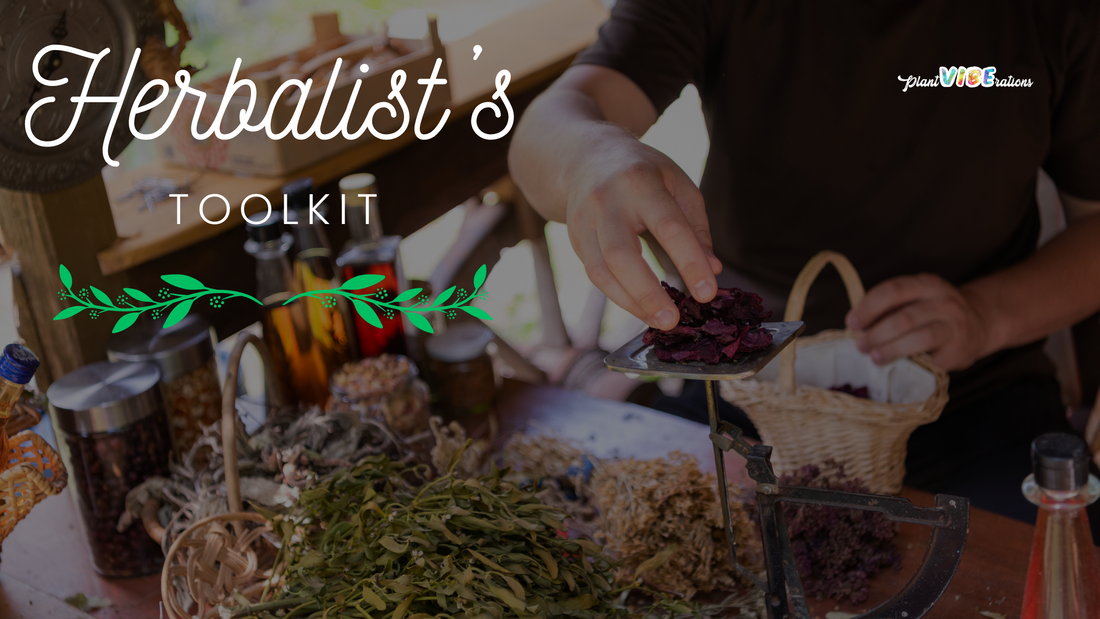Embarking on the journey of herbalism can be both exciting and overwhelming, given the vast array of herbs available. To simplify this journey, it's helpful to start with a basic toolkit of essential herbs. These herbs are versatile, beneficial for various common ailments, and a great introduction to the world of herbal remedies. This blog will guide you through some key herbs that are ideal for everyday use, helping you build your herbalist’s toolkit.
Essential Herbs for Your Toolkit
-
Chamomile: Renowned for its calming properties, chamomile is excellent for relieving stress, aiding sleep, and soothing digestive issues. It's commonly used in tea form.
-
Peppermint: Known for its refreshing aroma, peppermint is great for digestive health, relieving headaches, and can also provide relief from nasal congestion.
-
Lavender: Famous for its soothing scent, lavender is a go-to for stress relief, promoting relaxation and sleep, and can also be used to soothe skin irritations.
-
Ginger: A powerful anti-inflammatory and digestive aid, ginger can help with nausea, digestion, and is also beneficial in managing cold and flu symptoms.
-
Turmeric: With its potent anti-inflammatory properties, turmeric is excellent for joint health, boosting the immune system, and promoting overall wellness.
-
Echinacea: Known for its immune-boosting properties, Echinacea is ideal for combating colds and flu and can help in speeding up recovery.
-
Garlic: A natural antibiotic, garlic is great for cardiovascular health, has antimicrobial properties, and can boost the immune system.
-
Dandelion: Often overlooked, dandelion is a liver tonic, aids in digestion, and is rich in nutrients.
Using These Herbs
- Teas and Infusions: Chamomile, peppermint, and lavender can be used to make soothing teas.
- Tinctures and Extracts: Echinacea and garlic can be taken in tincture form for a more concentrated dose.
- Cooking: Incorporate ginger, turmeric, and garlic into your meals for both flavor and health benefits.
- Topical Applications: Lavender oil can be used topically for skin irritations or in aromatherapy for stress relief.
Creating Your Herbal Medicine Cabinet
Start by selecting a few herbs that address your most common health needs. As you grow more comfortable and knowledgeable, you can expand your toolkit to include a wider range of herbs.
Safety and Precautions
- Always research each herb and understand its uses and contraindications.
- If you are pregnant, breastfeeding, or have any chronic health conditions, consult with a healthcare professional before using herbal remedies.
- Be mindful of allergies and start with small doses to test for any adverse reactions.
Building an herbalist’s toolkit is a personal and rewarding journey. By starting with these essential herbs, you can begin to explore the world of herbalism and experience the benefits of natural remedies in your daily life. Remember, the key to effective herbalism is understanding each herb and how it can best support your health and wellness goals.

